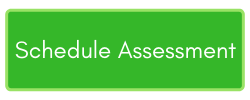Are you a family caregiver? If so, it wouldn’t be surprising if you find it hard to build a balance. By its nature, the caregiver role can be all-encompassing. It comes with a level of responsibility that can feel overwhelming. You can’t leave the role behind at the end of the day.
It is like being a parent in that sense. But, in other ways, it is quite different. As a caregiver for an elderly loved one, you have a history together and possibly more complicated emotions. Additionally, the role doesn’t tend to grow toward a goal of increased independence. Most likely, your loved one will need more care over time. Similarly, you tend to experience a lot of unpredictability as a caregiver. You have to learn new things and may not have a lot of people around you who understand.
For all of these reasons, it’s critical to build a balance. Our team will share insights gained from working with thousands of families. As a caregiver, you’ll find these steps to building a balance essential for your wellbeing as well as your loved one’s.
How to Build a Balance as a Family Caregiver
Create a caregiver routine.
Building in predictability where you can makes caregiving less stressful. It helps both you and your care recipient know what to expect. You will have an easier time keeping track of essential tasks. This routine can be especially important if your care recipient has Alzheimer’s or any cognitive problems. Actually, most elders facing change and loss benefit from the stability.
You can build the routine that works best for you and your loved one. Getting up and going to bed at similar times helps with sleep and mood. Mealtimes give the day a nice rhythm. You might want to set aside certain days/times for specific tasks. For example, you might grocery shop each Monday and do meal preparations for the week on Tuesdays. You can set aside days on your schedule to handle bills and paperwork. Keep a calendar and set reminders to help track appointments and to do’s.
Get organized.
There’s nothing worse than a middle of the night visit to the ER. Except when you’re ill-prepared and scrambling because you don’t have the documents or information you need at hand. As a family caregiver, it isn’t just emergencies that are more stressful when disorganized. Even standard doctor’s appointments will be easier with a little preparation.
Have advanced care planning documents handy at all times. (And make sure your loved one has the proper, updated documents.) Take time to get medical records organized and accessible. Or, get help from a care manager to do so. Have all your loved one’s key contacts ready to go at a moment’s notice. The few minutes to find a phone number or google the address may not seem like much. But, it’s these moments that add up and create a more stressful caregiving experience.
Even having an organized environment can help you feel more balanced. Additionally, a tidy, organized home keeps your loved one safer. Thus, it reduces the chances you’ll have to deal with a crisis as the caregiver.
Look at what takes up a lot of your caregiver time and energy and outsource.
When you’re feeling unbalanced and overwhelmed as a caregiver, look at where you spend your time. Do you feel like you’re in an endless round of doctor’s appointments? Are you always making appointments, coordinating insurance, handling paperwork and following up? It might be time to consider outsourcing some of these tasks to an advocate. A care manager is an expert at coordinating and navigating the medical system. So, your loved one gets the best care with less stress on you.
Think about what feels like a “time suck” or “energy drain”. Instead, those tasks can be replaced with the more personal time only you can give to your loved one. Many caregivers worry about future regrets over how they’re spending the limited time with their loved one. It’s a common caregiver dilemma: you’re trying to do the best for your loved one but can’t give them your best when stressed. When you’re always thinking about the next task, you’re likely to be harried and easily frustrated.
This could also include tasks that you are struggling with or have come to dread. Maybe your loved one has become resistant to your help with bathing. It could be worth having a professional caregiver help with personal care. They know special techniques to overcome such care challenges.
Additionally, there are apps and resources that can help with specific aspects of caregiving. Review your caregiving situation with a care manager to pinpoint the challenging areas and find solutions.
Always leave room for at least one “me” activity outside of your caregiver role. This should be in addition to rest time.
You will often hear that you need rest, or respite, as a caregiver. This is absolutely true. However, along with getting a break to rest, you should be sure to maintain at least one activity that you find enjoyable and engaging. You can’t maintain balance without something beyond being a caregiver.
This is also essential because the role of caregiver does not last forever. It’s natural to feel a profound sense of loss when your loved one dies or moves to a care facility. However, it can be hard to cope when you have had no role outside that of caregiver. Life may be out of balance with the demands of caregiving. However, you can balance the scales a bit with other activities and roles.
Respite care is one way to give yourself the space for outside activities. Download our free Checklist to Prepare for Respite Care, with tips on how to find the right respite options and have a successful experience.
Don’t try to do it all today. Prioritize.
Caregiving is complex and dynamic. You can’t swoop in and solve everything for your loved one today. You will burn yourself and your loved one out. It doesn’t give them the time to process the changes they’re facing. Often, this means the solutions won’t work or they’ll undo them.
What works better is prioritizing and making a plan. Someone (note: not always you) probably needs to handle certain things right away. They’re likely long overdue. But, how do you put tasks in order and understand timeframes? For example, at what point do you apply for financial assistance when your loved one has limited funds? How long will it take to get into a respite care program or care facility?
Your answer is a comprehensive assessment and care plan. A thorough look at the whole situation gives you an outline of what needs to be done when. It gives you the guidelines that are difficult to get by piecing information together haphazardly.
Get caregiver support.
Along with getting help as mentioned thus far, emotional support can give you a sense of balance. When you’re mired in the day-to-day of caregiving, you might feel alone and overwhelmed at times. It might seem like your spouse or friends don’t understand. However, other caregivers may be experiencing similar things. They can offer ideas or just an empathetic ear.
You might check out some local caregiver support groups. The Alzheimer’s Association and various organizations offer them. Some provide free respite care during the meetings. However, if you find it difficult to get to meetings or don’t find the right group in your area, check online.
EasyLiving started a Facebook group for caregivers as a place to share support and resources. We welcome you to join our Caregivers Community. Here’s a list of many more caregiver chats and support groups online.







